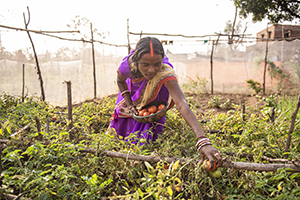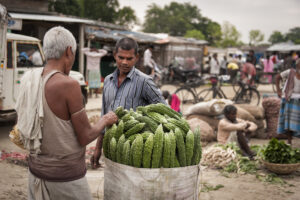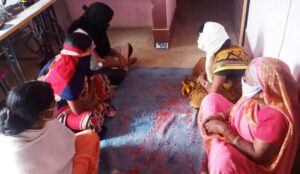
Reaching Farmers in Times of COVID-19
Digital Green is exploring how we can adapt our approaches and leverage technologies to communicate vital information amidst social distancing and lockdowns and to support smallholder farmers.
The second wave of COVID-19 pandemic in India has pushed the country into a state of humanitarian crisis of significant proportion. The scale and impact are of such never-seen-before magnitude that it has pushed the entire health care and governance system into disruption. While the second wave of COVID-19 has started to ebb in urban India, higher caseloads are being reported from semi-urban and rural demographics.
For past six years, Digital Green (DG) has been working closely with National Health Missions and Rural Livelihood Missions in the state of Bihar, Odisha, Jharkhand, Chhattisgarh, Uttarakhand and Assam, directly reaching close to a million people to bring positive health and nutrition behaviour change by leveraging technology. It is this experience that prompted us to reach out to the FLWs and understand how they are handling and coping with the COVID-19 pandemic.
Digital Green conducted a rapid assessment in May 2021 to understand the challenges experienced by the FLWs in dealing with Covid-19 pandemic on ground the issues related to testing and vaccination for COVID-19, and the support that the FLWs and community need to respond to the pandemic.
The findings of this survey are expected to contribute to efforts of the central and state governments, district health officials, non-government and other voluntary organizations, as well as the donor community to provide a comprehensive response to COVID-19 in rural and semi-urban India.
COVID-19 threatened both the health and livelihoods of rural communities -shutdowns of rural markets and transportation restrictions disrupted supply chains and markets.
Digital Green is supporting farmers by establishing new ways of delivering advisory services and strengthening market linkage, building on the potential of a more connected society. We also leverage offline solutions due to key gaps in digital access, with rural populations 40% less likely to use mobile internet than urban populations, and women 23% less likely than men.
Digital Green customizes content based on farmer feedback. We are working with government partners to develop locally-relevant video(s) with COVID-19 awareness messaging, to supplement videos on agronomic topics. Digital Green has developed more than 6,000 localized videos in over 30 languages and dialects, with over 60 million views on our YouTube channel demonstrating the demand for this advisory information

Digital Green is exploring how we can adapt our approaches and leverage technologies to communicate vital information amidst social distancing and lockdowns and to support smallholder farmers.

Our message on the ongoing COVID-19 crisis and commitment to serving smallholder farming communities in this crisis.

As the COVID-19 pandemic grips the world our offices have been locked down to promote social distancing. Hear how our field teams are coping with the situation.
